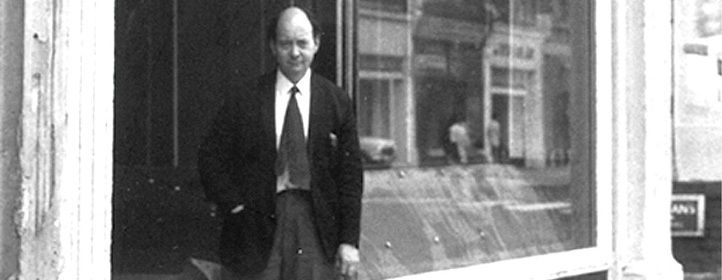A HARD DAYS NIGHT AT 60 YEARS OLD
- Cleaners HQ
- Jul 20, 2024
- 4 min read

Last Sunday evening, after a week of BBC Radio Robinson blathering non-stop about politics, with everyone else busy not enjoying the football, I was commemorating an important anniversary. It was 60 years ago this week, aged 11, that I decided I no longer wanted to become a farmer.
This was because on the 10th July, the Beatles film, A Hard Day’s Night went on general release. In the final days of primary school, just before the summer holidays, a schoolfriend and I watched the film at the Odeon Cinema in Chester. The singer Elvis Costello describes A Hard Days Night as the ‘fantasy version’ of what happened to the Beatles during their early days of great fame.
This is fair enough, I reckon but fantasy or not, the film remains a pretty good summing-up of the ensuing mass hysteria, which much of the tightly buttoned-up establishment of that time found itself unable to come to terms with. The Beatles, all aged between 20 and 23 during the film’s making were fired like human cannonballs into fame’s great blue yonder. They would soon discover that there was no safety net. A Hard Days Night was something of a rush-job, made over a scant 16 weeks, on a comparatively low budget. Its backers had been wary, in case the wind changed and the band suddenly lost traction.
Its director, Richard Lester shot the film as if it were a day-in-the-life, documentary-style feature. A Hard Days Night begins with the Beatles taking a train, presumably from Liverpool – London, in order to play a live performance at a television theatre. All sorts of shenanigans ensue, including a Keystone Cops-style chase, a press conference, lots of cheeky mop-top banter and of course, those now-immortal songs. Seen today, it still appears impossibly-stylish for having been shot in black and white.
Although the film was not a true-to-life portrait of the band members, it does unintentionally catch a wider snapshop of early Swinging London and Britain itself in the throes of a social earthquake.
Britain’s class-cordons, already threadbare from the recent Profumo scandal, began to unravel altogether, creating a situation whereby public schoolboys now managed working-class pop groups and a Marchioness might marry a jazz singer. The brand new Labour PM, Harold Wilson smoked a pipe, and wore a Gannex mac, while the working classes began to abandon Butlins for Benidorm as a holiday destination.
The success of A Hard Days Night, along with the seemingly unassailable popularity of the Beatles, saw them collecting MBEs from the Queen, just over a year after the film’s general release.
For me and probably thousands of other impressionable boys, the film, its stars and the lovable effrontery of their behaviour, soon became things to be emulated. For a few of us, however, it went much deeper. The message was that even if you came from a provincial terraced street, if you weren’t good at sport, hadn’t passed any exams and couldn’t even stand up for yourself in a playground fight, there might now be another way out -- a way to impress girls and to avoid the looming treadmill of mundanity. You might become a Beatle!
And that was what A Hard Day’s Night was all about. It gave a massive dollop of hope: to all the weedy specimens, kids with learning problems and people who just couldn’t fit it.
Kids like me. We’d grown up surrounded by war-damaged adults, authoritarian bullies and tweedy killjoy teachers, who’d shake you, cuff you round the head and bellow at you, “You’d better pull your socks up Laddie. Because when you leave this place, you will realise that Time Is Money.” All the usual old dross, which those of us who attended secondary schools at that time were heartily sick of.
Of the Beatles themselves, pied pipers for many and actual saviours for a few, what was the reality? Fame in such measure can be an unpredictable, untameable beast. Can anything really prepare a simple human soul for the unremitting hysteria of a public with whom you no longer have anything in common?
Two of the Beatles fell victim to attacks by free-thinking rugged individualists. We’re not allowed to call them dangerous nutters anymore, so I won’t. John Lennon was shot, dying on a New York street, only 16 years after A Hard Days Night was released. In late 1999, George Harrison was attacked in his home and repeatedly stabbed by his assailant, incurring a serious chest wound. The Beatle survived but died of cancer shortly afterwards, his health probably weakened by the attack. The surviving Beatles, Ringo and Paul, remain hugely-loved worldwide. At what cost, though?
A Hard Days Night the quick-fix, modestly-funded masterpiece, which is 60 years old this month, changed many lives and destinies, not least my own. The film remains funny, fast and a valued representation of the time which it portrays. If you’ve never seen it, or haven’t seen it recently, do so. You won’t be disappointed.
.............................................................................................................................
Pic. Shooting the film near Minehead, Somerset.










Comments